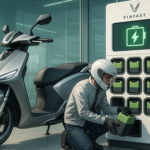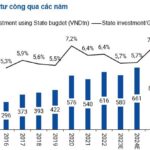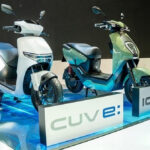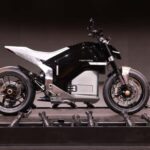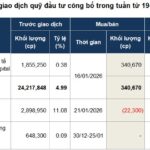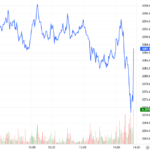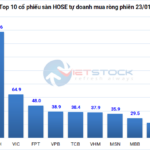Market leader, VinFast, has rolled out a series of trade-in events for gasoline vehicles in major cities, along with registration fee waivers and attractive subsidies.
Smaller Brands Struggle
Despite lacking the advantages and resources of VinFast in the Vietnamese market, Chinese electric vehicle brand Yadea has boldly initiated a trade-in campaign, offering market-based valuation for old vehicles and discounts of up to VND 2 million on new purchases priced at VND 9.9 million and above.
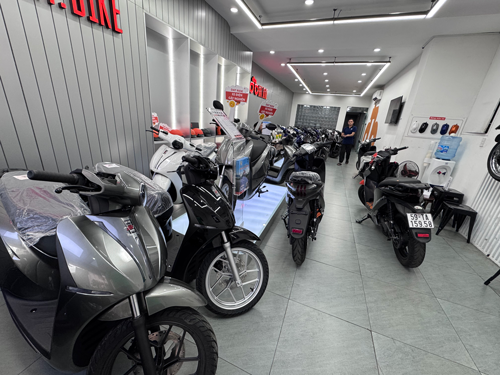
Many electric motorcycle brands have yet to offer significant incentives and continue to struggle to expand their market share.
Among domestic brands, Dat Bike is one of the Vietnamese companies that has successfully implemented a price reduction and gasoline-to-electric vehicle exchange strategy for its Quantum S models at dealerships nationwide. As a result, in July 2025, the brand’s electric vehicle sales quadrupled compared to the same period last year.
Selex Motors, on the other hand, leverages its quick battery swap network advantage, offering convenient battery swaps to woo customers. Veteran brands Honda and Yamaha have adopted a price reduction strategy to boost electric vehicle sales. Honda offers a rebate of up to VND 2.1 million for its ICON e model, while Yamaha provides a substantial discount of VND 15 million on its Neo model.
However, many electric motorcycle brands have yet to offer significant incentives and continue to struggle to expand their market share. Mr. Phung Ngoc Tai, owner of a motorcycle shop in Ho Chi Minh City, remarked that most smaller brands’ promotional programs are insignificant and too short to be effective. In contrast, larger brands with more attractive and widespread promotions easily attract customers and dominate the market.
Industry experts argue that competitive advantages related to vehicle performance and efficiency can quickly be surpassed as technology advances rapidly. On the other hand, advantages in pricing, incentives, and support are more enduring and crucial, especially given consumers’ current mindset of cautious spending.
For instance, Dat Bike once boasted an electric vehicle with a range of 280 km on a full charge, but this advantage diminished as competitors introduced models capable of traveling 200-260 km per charge. Pega, an early entrant into the market, holds about 10-15% market share but lacks standout policies to break through further. Dibao, known for its diverse range of models, has captured 10-12% of the market but is criticized for lacking policy emphasis. Selex’s interchangeable battery ecosystem is considered convenient, but its commercial effectiveness is limited.
Meanwhile, VinFast’s plan to build 150,000 battery swap stations for electric motorcycles will pose a significant challenge to smaller brands. Without breakthrough strategies, these companies risk losing their existing market share, let alone gaining new ground.
Enhancing Dealer and Customer Support
The policy to limit gasoline-powered two-wheelers in Hanoi and Ho Chi Minh City is driving a surge in demand for electric vehicles. However, to seize this opportunity, manufacturers must devise clear, far-sighted, and long-term strategies.
Mr. Hoang Manh Tan, Deputy General Director of Son Ha Group, shared that to stay competitive, the company is focusing on maintaining the performance of its dealerships and providing price support to stabilize their operations instead of hastily expanding market share. They are awaiting more concrete policies from the government.
According to Ms. Bui Nguyen Truc Ny, Sales Director of Dat Bike, the company is actively expanding its dealership network from 20 to 50 outlets this year. They continue to offer a trade-in program for gasoline motorcycles at their dealerships. Additionally, Dat Bike has partnered with Grab to support drivers in purchasing electric vehicles through installment plans.
Joining the price reduction trend, Mr. Nguyen Huu Phuoc Nguyen, CEO of Selex Motors, shared that they are offering discounts of VND 2-3 million for electric motorcycle purchases and a battery swap package with a 20-30% discount.
However, some brands remain lukewarm about electric motorcycles as their gasoline-powered vehicles continue to sell well. Yamaha introduced its first electric motorcycle model, the Neo’S, in the Vietnamese market in late 2022, but nearly three years later, no new models have been launched. Honda has two electric motorcycle models, one suitable for students and the other only available for rent, limiting its appeal.
Mr. Tran Anh Tung, Master of Science in Business Administration and Head of the Business Administration Department at the University of Economics and Finance in Ho Chi Minh City, asserted that if electric motorcycle brands do not seize the opportunity to accelerate their market share acquisition, they will soon fall behind as the market explodes with products and brands from domestic and foreign competitors.
The first solution to attract customers, according to Mr. Tung, is to develop affordable models priced below VND 20 million with stable quality, high durability, and suitability for urban commuting (10-20 km per trip). Secondly, businesses should invest in expanding the network of charging stations, battery swap points, and warranty services, especially in central areas, supermarkets, schools, apartment buildings, etc. This enhances convenience and reduces consumer apprehension.
“The most important policy to appeal to consumers’ psychology is financial incentives, including 0% interest loans, subsidies for trading in old gasoline vehicles for new electric ones, or collaborations with localities to implement green vehicle promotion programs,” suggested Mr. Tung.
The market share of electric motorcycles in the total motorcycle sales in Vietnam increased from 5.4% in 2019 to approximately 12% in 2022 and is expected to continue rising rapidly. Many experts predict that by 2035, electric motorcycles could capture 75% of the two-wheeler market share due to favorable policies and infrastructure development.
“VinFast Unveils Revolutionary Swappable Battery Electric Motorcycle: 150,000 Nationwide Swap Stations Promised”
On August 21, 2025, VinFast made a groundbreaking announcement: a nationwide expansion of its special green conversion policy to all 34 provinces and cities, along with the rollout of 150,000 electric motorcycle battery exchange stations and the launch of new electric motorcycle models with a battery swap feature.
The Top 6 Upcoming Honda Electric Vehicles in Vietnam
Where will the electric motorcycle market in Vietnam be headed in the near future? All eyes are on Honda, a renowned industry leader, as it is rumored to be gearing up to introduce a range of electric motorcycle models to the country. With a reputation for innovation and a commitment to sustainability, Honda is poised to revolutionize the two-wheeler industry in Vietnam, offering environmentally conscious consumers a much-anticipated alternative to traditional gasoline-powered bikes.

